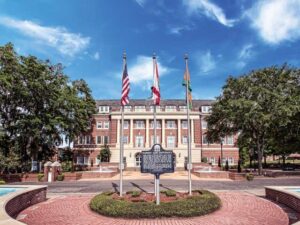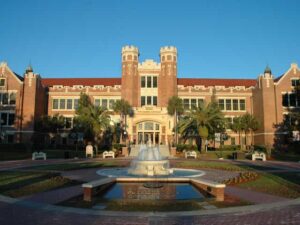
Despite the appearance of the coronavirus pandemic tapering off and the desire to return to life before the pandemic, the threat of infection is still very real. This past Saturday, the state of Florida reported 4,007 new cases — the highest single-day increase in coronavirus cases in two months, according to the Florida Department of Health.
Despite this, Florida A&M and Florida State have been repealing policies and guidelines put in place due to the pandemic.
According to the Florida Board of Governors meeting that was held and live-streamed on Sept. 16, the FAMU fall 2020 reopening plan was unanimously approved for implementation. This plan included the minimal use of in-person instruction, which has already begun on campus. Despite some students preferring in-person instruction as opposed to remote learning, the validity and reasoning behind the plan to reopen is questionable. Is it safe for students, faculty and staff to begin to reopen the campus?
On Oct. 9, the university lifted the student curfew for dorm residents and increased the number of people allowed at events to 30, according to FAMU Forward. During this time, the Florida Department of Health was reporting well over 1,000 new cases of COVID-19 per day in the state of Florida.
On Oct. 7, FAMU Developmental Research School (DRS) reopened after a two-week reprieve from in-person instruction due to positive COVID-19 cases in the faculty and student population. This decision to reopen comes after FAMU DRS teachers hosted an online protest of the opening of the campus at the beginning of the school year.
On Sept. 17 — the day after the Board of Governors meeting — 3,187 new cases were reported in the state of Florida. Is the university’s decision to continue with its reopening plan a bid to return to normalcy or a blatant disregard for the health and safety of its students, faculty and staff?

Florida State University has also begun reopening its campus, which is one of the largest by student population in Florida. Last week, FSU reported 26 new cases of COVID-19, bringing the total number of positive cases at the university to 1,558 since university-wide testing began at the beginning of August. Despite this, FSU is still hosting football games at Doak Campbell Stadium and has returned to the original policy of 50 people at student events, even after FSU President Thrasher and his wife were diagnosed with COVID-19 in early October.
The pandemic has caused stark changes in the lives of the thousands of students, but the reopening of college campuses has caused an increase in hundreds of cases of COVID-19. The desire to return to “normal” life is great and understandable, but is transitioning to 50 percentin-person instruction for the spring term and allowing student events worth risking the lives of students?